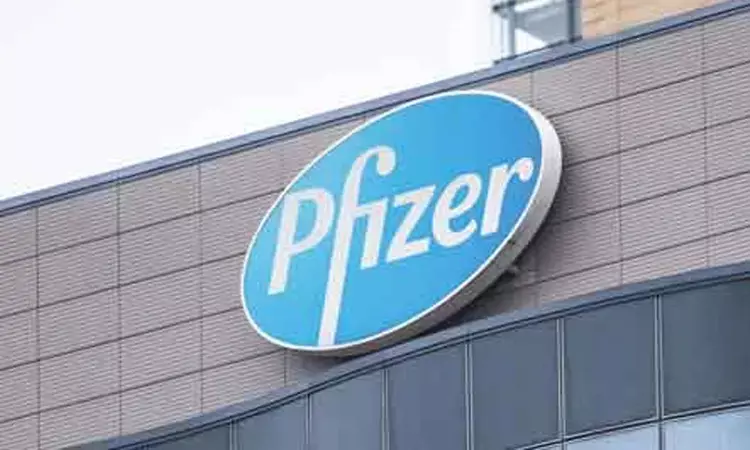- Home
- Medical news & Guidelines
- Anesthesiology
- Cardiology and CTVS
- Critical Care
- Dentistry
- Dermatology
- Diabetes and Endocrinology
- ENT
- Gastroenterology
- Medicine
- Nephrology
- Neurology
- Obstretics-Gynaecology
- Oncology
- Ophthalmology
- Orthopaedics
- Pediatrics-Neonatology
- Psychiatry
- Pulmonology
- Radiology
- Surgery
- Urology
- Laboratory Medicine
- Diet
- Nursing
- Paramedical
- Physiotherapy
- Health news
- Fact Check
- Bone Health Fact Check
- Brain Health Fact Check
- Cancer Related Fact Check
- Child Care Fact Check
- Dental and oral health fact check
- Diabetes and metabolic health fact check
- Diet and Nutrition Fact Check
- Eye and ENT Care Fact Check
- Fitness fact check
- Gut health fact check
- Heart health fact check
- Kidney health fact check
- Medical education fact check
- Men's health fact check
- Respiratory fact check
- Skin and hair care fact check
- Vaccine and Immunization fact check
- Women's health fact check
- AYUSH
- State News
- Andaman and Nicobar Islands
- Andhra Pradesh
- Arunachal Pradesh
- Assam
- Bihar
- Chandigarh
- Chattisgarh
- Dadra and Nagar Haveli
- Daman and Diu
- Delhi
- Goa
- Gujarat
- Haryana
- Himachal Pradesh
- Jammu & Kashmir
- Jharkhand
- Karnataka
- Kerala
- Ladakh
- Lakshadweep
- Madhya Pradesh
- Maharashtra
- Manipur
- Meghalaya
- Mizoram
- Nagaland
- Odisha
- Puducherry
- Punjab
- Rajasthan
- Sikkim
- Tamil Nadu
- Telangana
- Tripura
- Uttar Pradesh
- Uttrakhand
- West Bengal
- Medical Education
- Industry
Pfizer's bacteria prevention vaccine fails at main stage

The infection is associated with diarrhea that may progress to a severe and debilitating illness and even result in death.
New Delhi: Pfizer Inc said on Tuesday its vaccine to prevent infections from a bacteria that mainly spreads through hospitals and doctors' offices and can even prove fatal, failed to meet the main goal of a late-stage study.
There are no vaccines yet to prevent the illness caused by Clostridioides difficile (C. diff) bacterium, which has been classified as an urgent public health threat by the U.S. Centers for Disease Control and Prevention.
The infection is associated with diarrhea that may progress to a severe and debilitating illness and even result in death. Most C. diff cases occur when patients have been taking antibiotics, which wipe out friendly bacteria in the colon that normally keep C. diff under control.
The Pfizer vaccine only showed an efficacy of 31% in preventing the infections after the third dose, and 28.6% following the second dose in the study.
Read Also- Pfizer supplemental application for ABRILADA interchangeability accepted by USFDA for review
For infections recorded 14 days after the third dose, vaccine efficacy was 49% at 12 months, 47% at 24 months and 31% at final analysis.
But Pfizer said it would evaluate next steps as the trial showed the vaccine helped reduce the severity of infections.
"We are encouraged by the promising potential benefit observed against more severe C. difficile infection, as a large portion of cases lead to extended diarrhea episodes that can require hospitalization," said Pfizer's head of vaccine research and development, Kathrin Jansen.
Read Also - Pfizer COVID vaccine approved in South Korea for 5-11 years old
Pfizer RxPathways connects eligible patients to a range of assistance programs that offer insurance support, co-pay help, and medicines for free or at a savings. With manufacturing sites placed strategically around the world, Pfizer is able to ensure an uninterrupted supply of vital medicines, vaccines, and their components, at competitive prices. Located in places that give us a logistical advantage, our facilities maintain our high standards for safety and efficacy.
Medical Dialogues Bureau consists of a team of passionate medical/scientific writers, led by doctors and healthcare researchers. Our team efforts to bring you updated and timely news about the important happenings of the medical and healthcare sector. Our editorial team can be reached at editorial@medicaldialogues.in.


